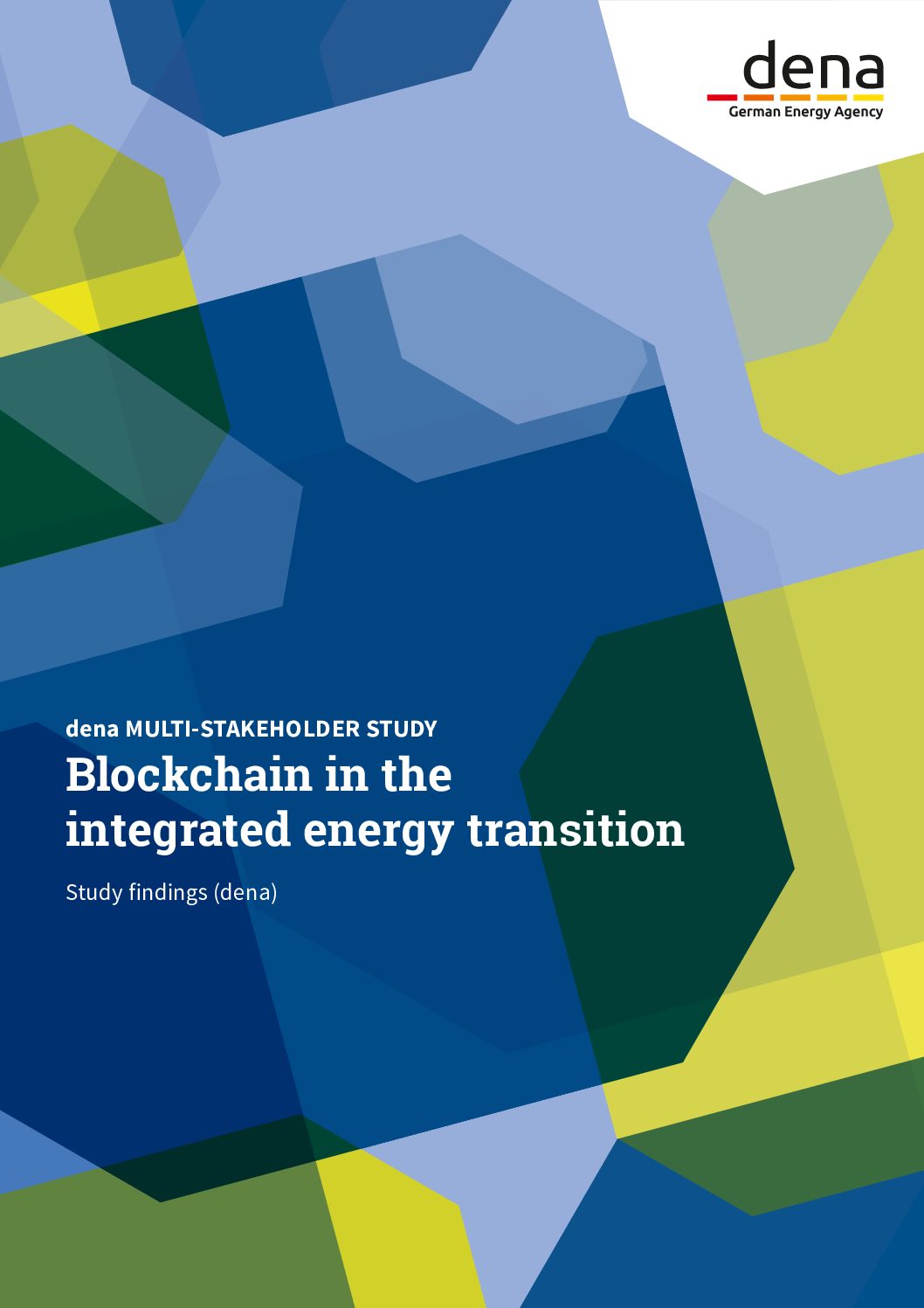
A study entitled “Blockchain in the integrated energy transition” conducted by the Deutschen Energie-Agentur (dena) indicates that blockchain technology is already able to generate added value in many areas of the energy industry for both companies and consumers. The study explored the potential added value of using blockchain within the context of the energy transition based on actual use cases from the energy industry’s core areas of asset management, data management, market communications, energy trading and financing. The study was conducted using the expertise of 16 partner companies, two independent experts and nine scientific and business advisers.
According to Andreas Kuhlmann, dena’s Chief Executive, “Our study shows that blockchain can be of value in particular when used alongside existing digital information exchange protocols. However, it has also highlighted the need for case-by-case analyses for every single application scenario. Further, in order for the core of this technology to be able to further improve and be used more widely across the energy industry, it has to be given greater consideration by policymakers and the business sector.”
This refers in particular to the inclusion of the latest energy industry study results in the German government’s planned blockchain strategy, which is to be published this summer. It also requires a stronger promotion of broad, real-life and market-oriented pilots of this technology within the energy sector as well as an investigation of the potential impact of blockchain on the acceptance of the energy transition.
Economic, technological and regulatory assessments – the determinants of success
The study has shown that the use of blockchain is of economic, technological and regulatory advantage for companies in some of the investigated areas of application, but also that these dimensions always have to be assessed separately and weighed against each other. This is because, even if its use greatly enhances the technological aspects of a particular use case, the associated energy or data protection law hurdles may still impact on its economic benefit.
The study’s investigation of this technology’s cost effectiveness demonstrated its potential to contribute to reducing operating costs through automation and process optimisation and to generate added value by way of controlled information management. Areas of application in which the economic benefits associated with the use of blockchain are anticipated to be particularly high include, amongst others, the certification of guarantees of origin, registration of facilities in the core energy market data register and provision of energy services for buildings and industrial processes.
In assessing the technological feasibility of blockchain’s use within the energy industry, the areas of application that, amongst others, stand out in particular are energy services for buildings and industrial processes, peer-to-peer-trading and landlord-to-tenant electricity supply. Overall, the technology is still in the development stage and has not yet reached technical maturity. However, the stakeholders involved are working hard to improve interfaces and to develop the first standards, which will have a significant positive impact on its scalability.
The study’s regulatory assessment of the use cases showed that it is, in principle, possible to use blockchain in the energy sector within the context of energy law, but that every use case will have to be assessed individually. Factors impacting on its use in this context include data protection and data security laws as well as energy law. Areas of application with comparatively high regulatory challenges are the certification of guarantees of origin and the registration of facilities in the core market data register.
A good time to get on board for companies
This is the perfect time to get on board for energy sector companies interested in gaining initial experience with blockchain technology or in initiating pilot projects. The associated strategic benefits for companies are also increasing: In addition to gaining a first mover advantage on the market, piloting blockchain can also generate synergies for in-house developments of other innovative digital products and services. When introducing the technology, companies can benefit from the checklist used as part of the study.
For Philipp Richard, team manager for digitisation and project director of the blockchain study, the advantages of this technology – transparency, confidence, security and data sovereignty – for the energy system will further increase in the coming years: “Blockchain is still in its infancy. Thanks to technological developments, over the next two years we will see an increase in its transaction speed, improvement in its interoperability and applicability, reduction of its energy consumption and hence an increase in its competitiveness. It is also likely that it will be used to support operations within the coming years that are way beyond the use cases we are currently aware of.”
The dena blockchain study
This study analyses use cases for blockchain within the energy system, amongst others, with respect to its technological maturity, competition with other digital technologies, business and economic benefits, strategic benefits and regulatory issues. The study findings were used to formulate recommended courses of action for policymakers, the energy industry and the blockchain scene.
The study was conducted together with the following partners: Alliander, BKW, cronos Unternehmensberatung, DKB, EnBW Energie Baden-Württemberg, EWE NETZ, General Electric, items, ista International, Mainova, Netz Lübeck, Pfalzwerke, Rheinische NETZGesellschaft, Siemens, Stadtwerke Leipzig, VERBUND.
The study’s technical consultants are Prof. Jens Strüker, Managing Director of the Institute of Energy Economics (INEWI) at Fresenius University and responsible for the study’s economic and technological assessment and Dr Ludwig Einhellig, Senior Manager and Head of Smart Grid at Deloitte, who provided his expertise on the regulatory aspects.
